Tag: Anderson (Robert)
 Wikipedia says: Robert Anderson (June 14, 1805 – October 26, 1871) was a United States Army officer during the American Civil War. He was the Union commander in the first battle of the American Civil War at Fort Sumter in April 1861; the Confederates bombarded the fort and forced its surrender to start the war. Anderson was celebrated as a hero in the North and promoted to brigadier general and given command of Union forces in Kentucky. He was removed late in 1861 and reassigned to Rhode Island, before retiring from military service in 1863.
Wikipedia says: Robert Anderson (June 14, 1805 – October 26, 1871) was a United States Army officer during the American Civil War. He was the Union commander in the first battle of the American Civil War at Fort Sumter in April 1861; the Confederates bombarded the fort and forced its surrender to start the war. Anderson was celebrated as a hero in the North and promoted to brigadier general and given command of Union forces in Kentucky. He was removed late in 1861 and reassigned to Rhode Island, before retiring from military service in 1863.
…In November 1860, Anderson was assigned to command of U.S. forces in and around Charleston, South Carolina. When South Carolina seceded in December 1860, Anderson remained loyal to the Union although he was a native of Kentucky and a former slaveowner. He moved his small garrison from Fort Moultrie, which was indefensible, to the more modern and more defensible Fort Sumter, in the middle of Charleston Harbor. In February 1861, the Confederate States of America was formed and took charge. Confederate President Jefferson Davis ordered for the fort be captured. The artillery attack was commanded by Brigadier General P. G. T. Beauregard, who had been Anderson’s student at West Point. The attack began April 12, 1861, and continued until Anderson, badly outnumbered and outgunned, surrendered the fort on April 13. The battle began the American Civil War. No one was killed in the battle on either side, but one Union soldier was killed and another was mortally wounded during a 50-gun salute.
Anderson’s actions in defense of Fort Sumter made him an immediate national hero. He was promoted to brigadier general in the Regular Army, effective May 15. Anderson took the fort’s 33-star flag with him to New York City, where he participated in a Union Square patriotic rally that was the largest public gathering in North America until then.
Anderson then went on a highly-successful recruiting tour of the North. His next assignment placed him in another sensitive political position as commander of the Department of Kentucky (subsequently renamed the Department of the Cumberland), in a border state that had officially declared neutrality between the warring parties. He started to serve in that position from May 28, 1861. Historians commonly attribute failing health as the reason for his relinquishment of command to Brigadier General William T. Sherman, on October 7, 1861, but a letter from Joshua Fry Speed, Lincoln’s close friend, suggests that Lincoln preferred Anderson’s removal.
Speed met with Anderson and found him reluctant to implement Lincoln’s wishes to distribute rifles to Unionists in Kentucky. Anderson, Speed wrote to Lincoln on October 8, “seemed grieved that [he] had to surrender his command … [but] agreed that it was necessary and gracefully yielded.”
In 1862, Anderson was elected an honorary member of the New York Society of the Cincinnati in which his grandnephew, Ambassador Larz Anderson, was highly active.
Anderson’s last military assignment was a brief period as commanding officer of Fort Adams in Newport, Rhode Island, in August 1863. Anderson officially retired from the Army on October 27, 1863 “for Disability resulting from Long and Faithful Service, and Wounds and disease contracted in the Line of Duty,” but he continued to serve on the staff of the general commanding the Eastern Department, headquartered in New York City, from October 27, 1863 to January 22, 1869. On February 3, 1865, Anderson was brevetted a major general for “gallantry and meritorious service” in the defense of Fort Sumter.
Showing all 7 results
-
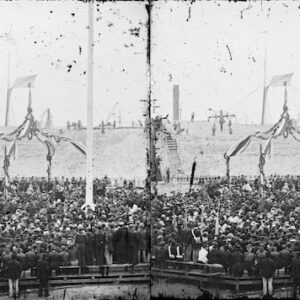
Image ID: ALDB
$6.99 -
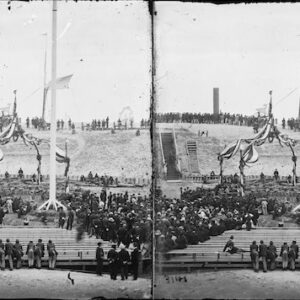
Image ID: ALDC
$6.99 -
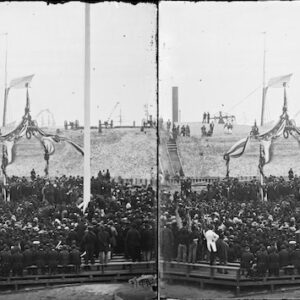
Image ID: ALDE
$6.99 -
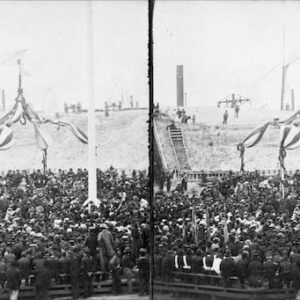
Image ID: ALPY
$5.99 This product has multiple variants. The options may be chosen on the product page -
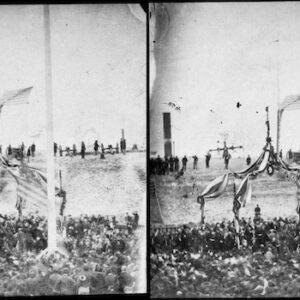
Image ID: ASCZ
$5.99 -
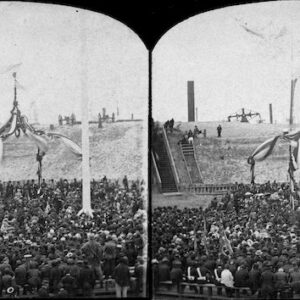
Image ID: AXBP
$4.99 -
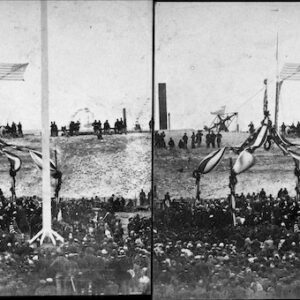
Image ID: AXBR
$4.99